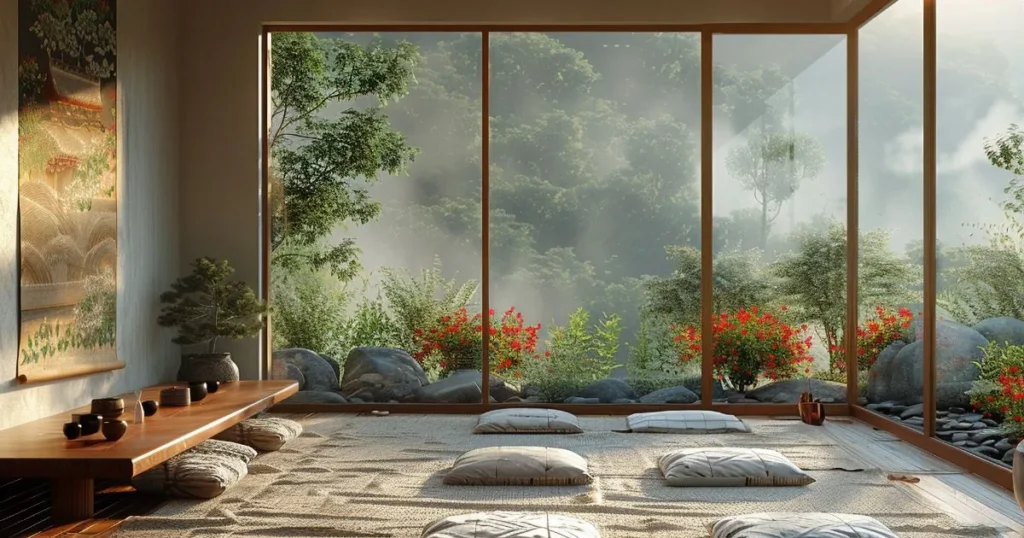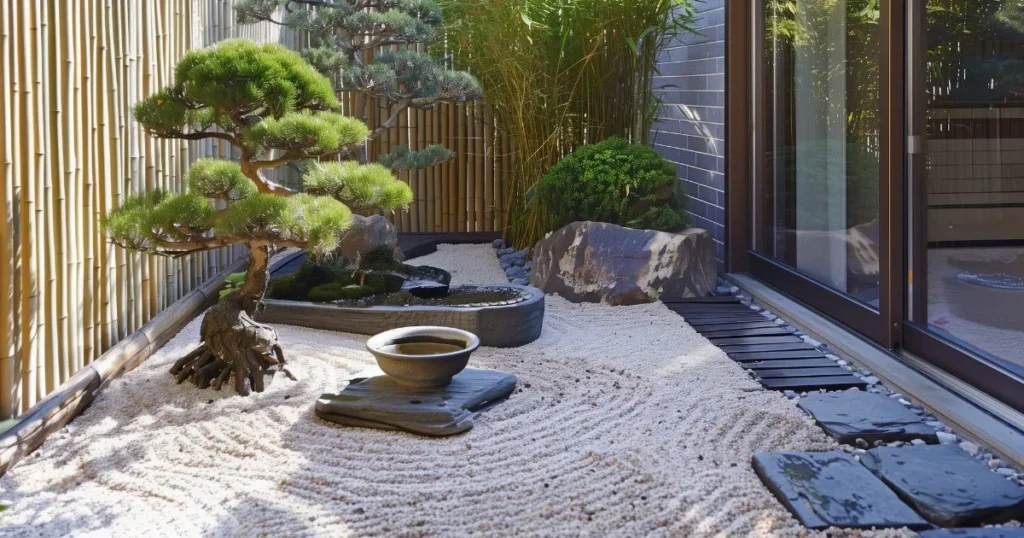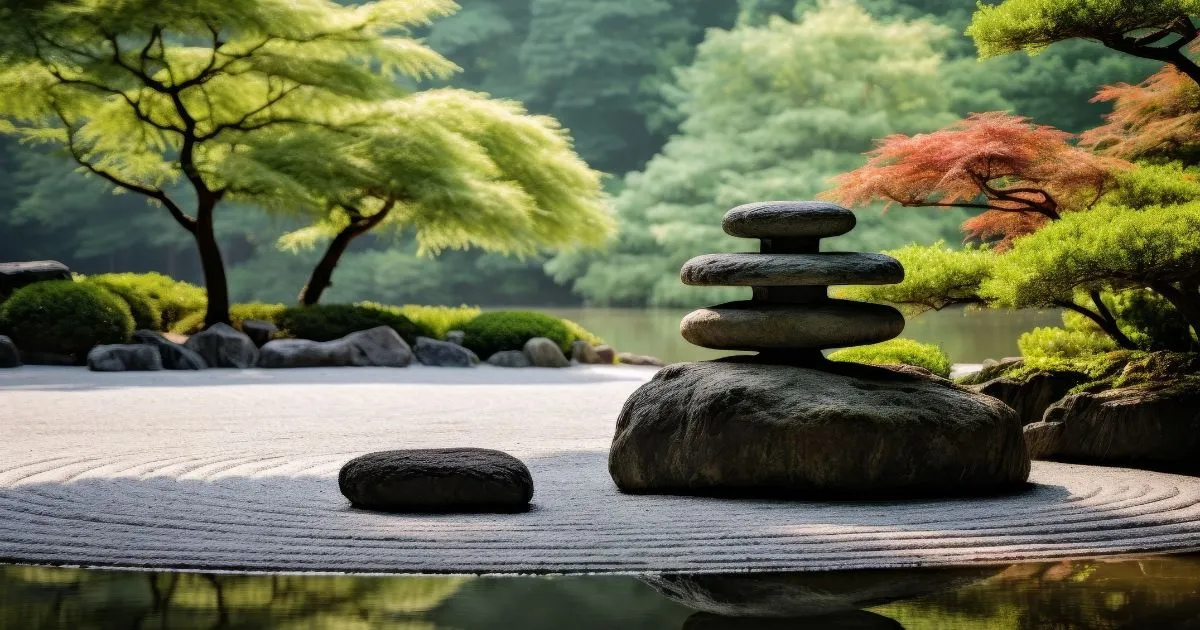Table of Contents
Introduction
Zen gardens are not only about rocks, sand, and gravel; the plants you choose for your zen garden play a crucial role in maintaining its serene and peaceful ambiance. Zen garden plants embody the spirit of nature, symbolizing balance, harmony, and tranquility. They are carefully chosen to reflect the core principles of Zen philosophy, where simplicity, minimalism, and mindfulness come together.
In this article, we will explore the best zen garden plants, their significance, and how to choose and care for them in order to create a perfect and peaceful zen garden. We will also discuss the various types of plants suitable for zen gardens, offering advice on the aesthetic and symbolic meaning of each.
What Are Zen Garden Plants?
Zen garden plants are plants that are carefully selected to enhance the atmosphere of a zen garden. These plants should reflect the principles of Zen Buddhism, which emphasizes simplicity, nature, and mindfulness. Zen gardens are often designed to be minimalist, with the plants contributing to the tranquility of the space rather than overwhelming it.
The Role of Plants in Zen Gardens
While zen garden plants are not the focal point in most zen gardens (which tend to emphasize rocks, gravel, and sand), they still play a significant role in creating harmony. The right plants can symbolize life, growth, and renewal while maintaining a simple and calming aesthetic.
For many people, the plants in a zen garden provide a living counterpart to the stillness of rocks and sand. Their gentle movements, the softness of their leaves, and the colors they provide create a sense of life and vitality in the garden, which is essential for balance.
Choosing the Best Zen Garden Plants
Key Considerations When Selecting Zen Garden Plants
When choosing zen garden plants, there are several factors to consider. The plants should align with the minimalist philosophy of zen gardens, so it’s essential to choose plants that are low-maintenance, non-invasive, and simple in appearance. Here are some factors to consider when selecting plants for your zen garden:
Size and Growth Habits
Zen garden plants should be relatively small and not grow too quickly or uncontrollably. This is because the plants should maintain the garden’s sense of simplicity and space. Additionally, plants that don’t require frequent pruning or maintenance are ideal.
Colors and Textures
The colors of the plants should be calming and neutral. Most zen garden plants feature green hues, but there are others that add slight variations in color—such as moss, which offers a vibrant green contrast. The texture of the plants should also be soft and gentle, contributing to the serene ambiance.
Care Requirements
Zen gardens are meant to be peaceful and easy to maintain. Therefore, the plants you choose should be hardy, adaptable to indoor environments, and easy to care for. Low-maintenance plants are often the best choice for zen gardens.

Types of Zen Garden Plants
There are many types of plants that can be used in a zen garden, ranging from trees and shrubs to moss and succulents. Below, we will explore some of the most popular zen garden plants, their uses, and how they enhance the beauty and tranquility of your zen garden.
Bonsai Trees
Bonsai trees are a classic addition to any zen garden. They symbolize harmony, peace, and balance. These miniature trees are cultivated to look like their larger counterparts, and their carefully pruned branches and compact size make them an ideal plant for zen gardens.
Popular Bonsai Varieties
- Ficus Bonsai: This tree is known for its small, waxy leaves and flexible trunk, making it ideal for indoor zen gardens.
- Juniper Bonsai: With its conical shape and needle-like leaves, the juniper bonsai is an excellent choice for a zen garden, symbolizing strength and endurance.
- Pine Bonsai: The pine tree is a symbol of longevity, and its compact size makes it a perfect zen garden plant.
Moss
Moss is an essential element of many zen gardens because it adds a soft, plush texture and symbolizes renewal and quiet growth. Moss is often used to cover the ground or to accentuate rocks and other elements in the garden.
Types of Moss Suitable for Zen Gardens
- Sheet Moss: This type of moss grows in thin, flat layers, making it ideal for covering large areas in a zen garden.
- Cushion Moss: Cushion moss forms dense, rounded clumps, which adds texture and dimension to the garden’s landscape.
- Mood Moss: Known for its soft, velvety texture, mood moss can add a touch of tranquility to your zen garden.
Succulents and Cacti
Although succulents and cacti are not traditionally associated with Zen gardens, they can be a great addition due to their minimalist appearance and ease of care. These plants come in various shapes and colors, making them a versatile option for creating a low-maintenance zen garden.
Best Succulents for Zen Gardens
- Echeveria: With its rosette shape and delicate colors, Echeveria is a striking plant for a zen garden.
- Aloe Vera: Known for its healing properties, Aloe Vera can bring a peaceful, health-conscious vibe to your zen garden.
- Sedum: Sedum varieties, like ‘Autumn Joy,’ add a splash of color and texture to a zen garden without being overwhelming.
Bamboo
Bamboo is a symbolic and versatile plant that adds elegance to any zen garden. In Zen Buddhism, bamboo symbolizes strength, resilience, and flexibility. It can be placed in containers, or even allowed to grow in certain areas of your garden.
Care Tips for Bamboo in Zen Gardens
- Bamboo prefers moist soil and partial sunlight, making it suitable for both indoor and outdoor zen gardens.
- It’s essential to prune bamboo regularly to maintain a neat appearance and prevent overgrowth.
Ferns and Grasses
Ferns and ornamental grasses are wonderful additions to a zen garden. Their graceful, flowing shapes help create a sense of movement and liveliness without disrupting the peaceful atmosphere. Ferns and grasses can be planted around rocks or used as ground cover.
Recommended Ferns and Grasses
- Japanese Painted Fern: Known for its silver, purple, and green foliage, this fern adds a unique touch to your zen garden.
- Japanese Blood Grass: This ornamental grass turns red in the fall, creating a beautiful contrast against the neutral tones of the rocks and gravel.
Creating a Balanced Zen Garden with Plants
When designing your zen garden, balance and simplicity are key. Here are some tips to create a harmonious relationship between your plants and the other elements in the garden:
Grouping Plants
Group plants of similar sizes together to create symmetry in the garden. Place taller plants at the back and smaller plants in the front, so the garden remains open and uncluttered. Avoid overcrowding the plants, as the goal is to maintain a sense of space and tranquility.
Using Plants as Focal Points
Certain plants, such as bonsai trees or larger bamboo stalks, can be used as focal points within the zen garden. By placing one or two larger plants in the center or at the edge of the garden, you can draw attention to specific areas and create a sense of harmony.
Incorporating Rocks and Gravel
While plants are an essential part of a zen garden, rocks and gravel are just as important. The right combination of plants, rocks, and gravel creates balance and emphasizes the minimalist beauty of the garden. Be sure to leave plenty of space for the sand or gravel to flow, allowing for the calm, meditative qualities of the garden to shine through.

Maintaining Your Zen Garden Plants
Regular Watering and Pruning
Although zen garden plants are typically low-maintenance, regular watering and pruning are essential. Most plants in a zen garden do not require excessive watering, but they should be watered consistently. Make sure to prune any dead leaves or branches to maintain the clean, uncluttered look of the garden.
Keeping Plants Healthy
Maintaining a healthy environment for your plants is crucial for their longevity. Ensure they receive the proper amount of sunlight, moisture, and nutrients. Use appropriate soil for each type of plant and monitor for pests or diseases that might harm your garden.
Conclusion
Incorporating zen garden plants into your garden enhances its beauty, symbolism, and tranquility. Whether you choose bonsai trees, moss, succulents, or bamboo, each plant adds a unique element that helps create a peaceful retreat in your home. By selecting the right plants, arranging them thoughtfully, and maintaining their health, you can design a zen garden that provides a calming environment for years to come.
Frequently Asked Questions (FAQ)
What are the best plants for an indoor zen garden?
The best plants for an indoor zen garden are those that thrive in low light and require minimal care. Bonsai trees, moss, succulents, and ferns are all great choices for indoor zen gardens.
Can I create a zen garden with just plants?
While plants are an important part of a zen garden, they are typically combined with rocks, sand, or gravel to create the traditional minimalist landscape. Plants alone may not fully capture the essence of a zen garden.
How do I care for bamboo in my zen garden?
Bamboo requires regular watering and should be placed in a location with partial sunlight. Be sure to trim it regularly to prevent overgrowth and maintain its neat appearance.
How often should I water my zen garden plants?
Most zen garden plants prefer infrequent watering, so check the soil moisture regularly and only water when it feels dry. Succulents, for example, need watering every few weeks, while ferns and bamboo may require more frequent moisture.

